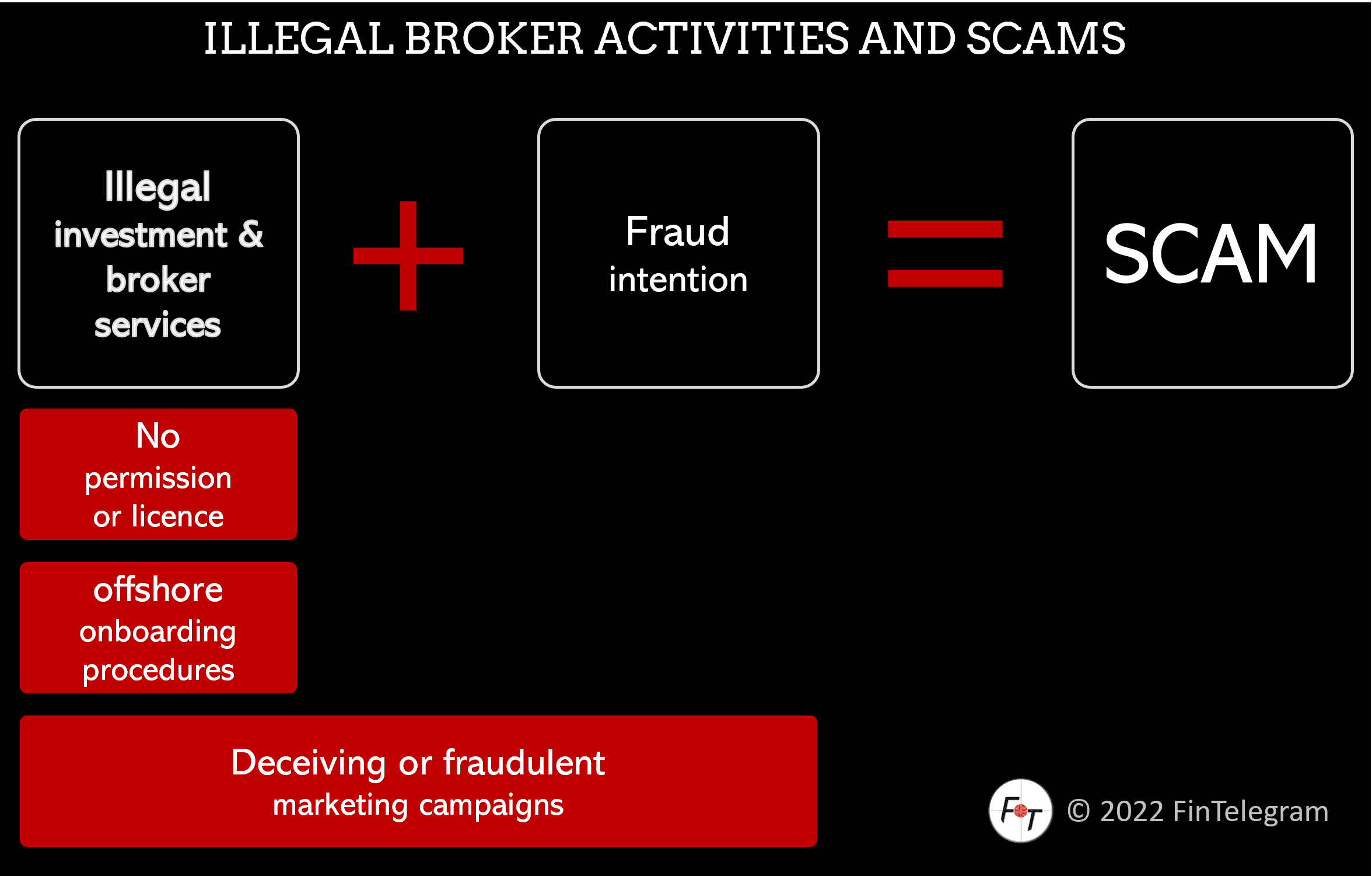We are often asked where the difference is between illegally operating brokers and scam brokers. Indeed, a valid question, and the line is undoubtedly blurred. The simple answer is that all scams are illegal, but not all illegally acting brokers are necessarily scams. Brokers or investment firms act illegally if they do not have the required permission for their offering in the respective regulatory regimes. In the case of scammers, the intent to defraud their clients is the defining point.
For example, we know that many CySEC-regulated brokers operate through offshore companies to intentionally and systematically circumvent ESMA– and CySEC-regulatory requirements. For example, this relates to leveraging restricted under ESMA at a maximum of 30:1 for CFDs and 2:1 for cryptocurrencies. Via offshore companies, regulated brokers circumvent these restrictions. Likewise, offshore onboarding procedures are often not complicated with ESMA regulations.
Offshore brokers are special purpose vehicles created to circumvent regulatory obligations. They typically operate with regulated brokers’ logos and share resources like call centers. Still, they do not have permission to operate in ESMA countries, even though they may be related to regulated ESMA entities in one way or the other. This systematic circumvention of regulatory requirements of regulated investment firms via offshore entities is not necessarily a fraud but, in any case illegal.
Scam brokers have the intent to defraud their clients. They are either not regulated or regulated by an incompetent offshore regulator. For example, they have no intention to comply with any regulatory requirements and do not hold client money in segregated accounts. They do not use the client deposits for investment or trading purposes but misuse the funds to finance their operations and luxury lives. This appro undoubtedly is fraud.
In many cases, regulated brokers and scammers work with fraudulent marketing campaigns such as Bitcoin Prime, Bitcoin Revolution, or BitQT, promising clients quick wealth. In any case, that’s a fraud, too.
